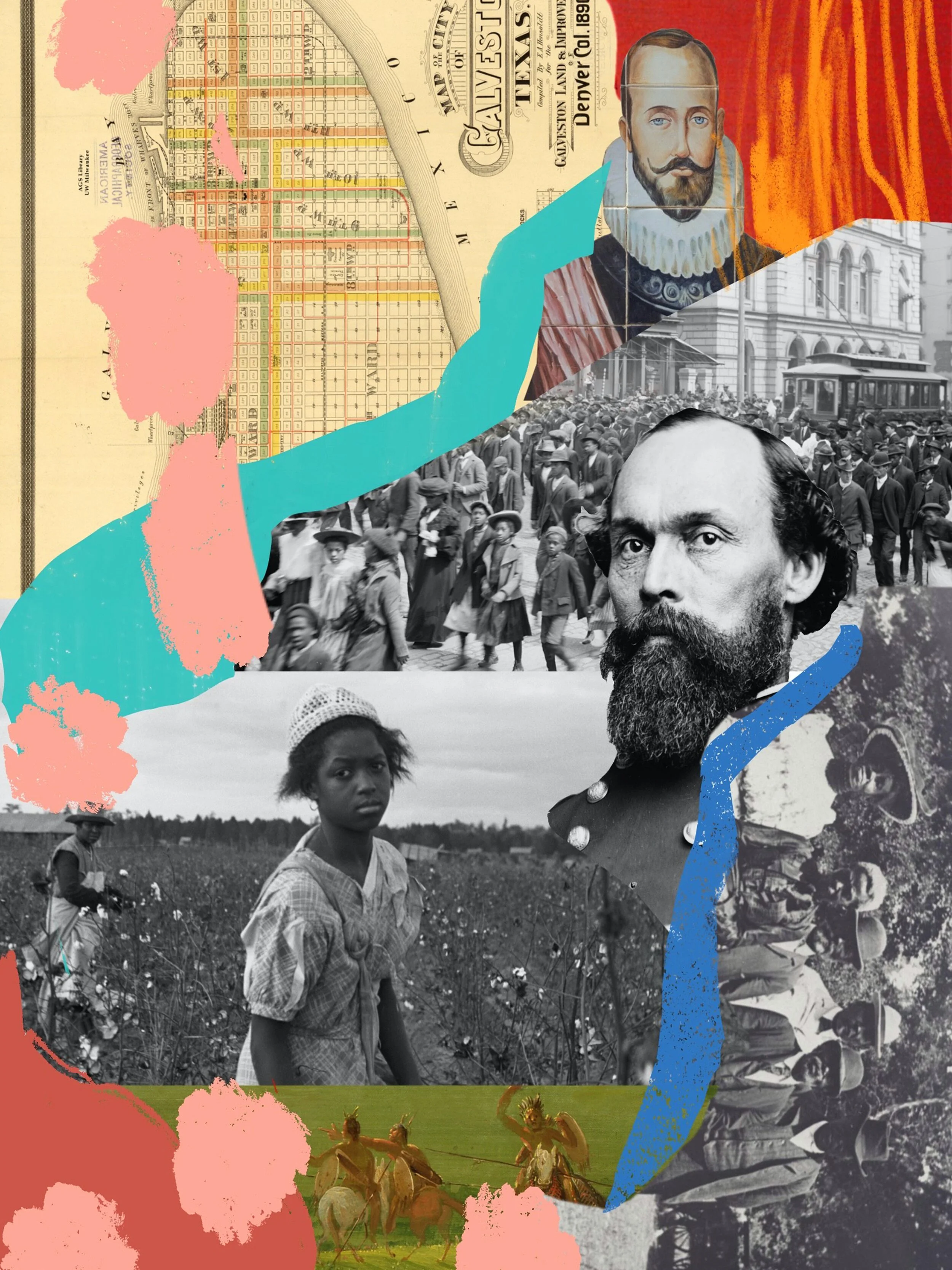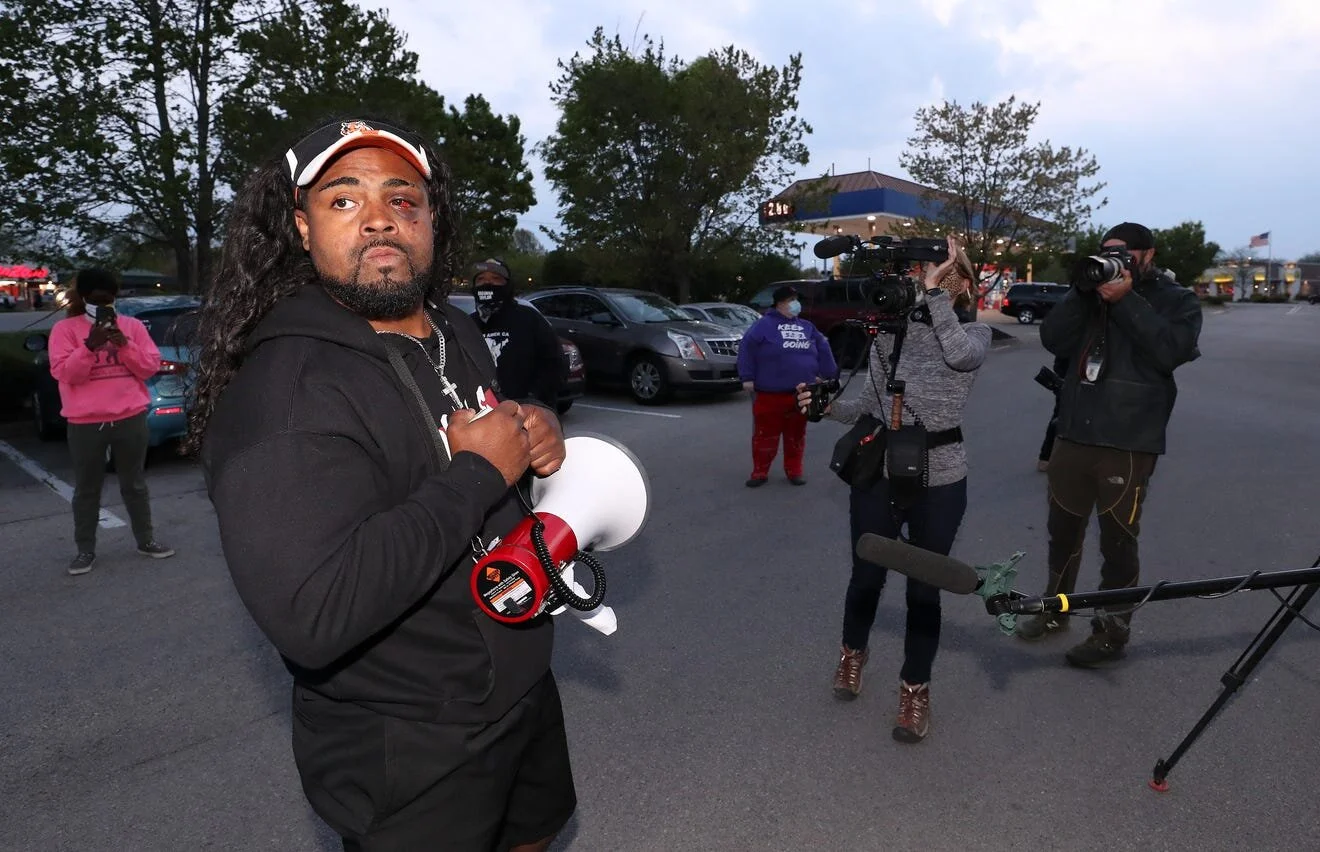Since the declaration of Martin Luther King, Jr.,’s birthday as a federal holiday, our country has celebrated the civil-rights movement, valorizing its tactics of nonviolence as part of our national narrative of progress toward a more perfect union. Yet we rarely ask about the short life span of those tactics. By 1964, nonviolence seemed to have run its course, as Harlem and Philadelphia ignited in flames to protest police brutality, poverty, and exclusion, in what were denounced as riots. Even larger and more destructive uprisings followed, in Los Angeles and Detroit, and, after the assassination of King, in 1968, across the country: a fiery tumult that came to be seen as emblematic of Black urban violence and poverty. The violent turn in Black protest was condemned in its own time and continues to be lamented as a tragic retreat from the noble objectives and demeanor of the church-based Southern movement.
Read More“Damn I caught a blessing.”
Read MoreIn the early 2000s, before the levees broke in New Orleans, it was still possible to be a provincial New Englander and drive in a shiny rental car down Interstate 45 toward Galveston, Texas, without feeling anything except a profound appreciation for the beauty glistening off the West Bay in the sun. Galveston is one of those seaports that can make you stop in your tracks as you consume its beauty, even as Barack Obama’s 2008 election brought long simmering white resentment to a boil beneath flapping DON’T TREAD ON ME banners and Confederate-flag–stamped golf carts in the West End.
Read More“ADOS does not mean he doesn’t care or we don’t care for Black people around the world; it just means we acknowledge we need to take care of the ones here first — the ones who built the richest and most powerful country in the world but never got those riches or the power.”
Read More"It's very disappointing and heartbreaking that other people of the community would go to this length to say a Black woman's life didn't matter, a woman who still deserves justice today," the statement said, in part. "But know that you did not hurt Breonna, the system already did that. What you did was hinder the healing process going on in the city."
Read MoreA group of JCPS students is using hip-hop to push legislation banning race-based hair discrimination — and their efforts have resulted in the introduction of a Louisville Metro Council ordinance.
Read MoreSimmons College of Kentucky announced two major moves Thursday, paying off the tuition debt of 65 students and unveiling plans for a new on-campus construction project in Louisville.
Read MoreLouisville police killed Breonna Taylor during an execution of a "no-knock warrant" in her home. No one was charged for her death, but it changed the lives of the city's residents, spurring vast protests and calls to action. Despite some efforts, the city's Black residents are still awaiting systemic change. John Yang examines how segregation and historical redlining led to the current situation.
Read MoreHistorically Black Neighborhood (HBN) residents are fighting back to protect their neighbors---not just their neighborhoods! The HBN Assembly is a reoccurring series of meetings and strategy sessions aimed at protecting and stabilizing Black communities against the violence of gentrification. The HBN Assembly is bringing Black Louisvillians together to develop policies and other strategies. We center those most vulnerable to gentrification and are actively building freedom colonies in the city of Louisville.
Read MoreCarstanjen said his organization listened to members of the Black community and has reached out to local leaders. This week, officials announced the Derby Equity and Community Initiative, a five-year effort that is led by the Kentucky Derby Festival and is backed in part with funding from Churchill Downs.
Read MoreMetro Councilman Jecorey Arthur is urging police Chief Erika Shields and Mayor Greg Fischer to fire officers involved in an arrest Sunday, saying they violated the city's use of force policy when an officer repeatedly punched a protester in the face and others stood by and didn't stop him.
Read MoreThe Historically Black Neighborhood Assembly has its first meeting this Saturday, hosted by the Smoketown Neighborhood Association with Books and Breakfast Louisville.
Read MoreLast summer, while my community of Louisville, Kentucky – and the world – took to the streets in protest of the killing of Breonna Taylor, I participated in a Healing Ceremony hosted by Black Lives Matter Louisville. My goal was to be quiet, to listen, and to respond as requested by the leaders who guided us. An educator-turned-city-councilman colleague, Jecorey Arthur, led the ceremony with several others.
Read More“If you’re that sorry that you just follow the money, then you got a problem…It’s not about the community, it’s about how much money [you] can make.” - Shirley Mae Beard
Read MoreLouisville, Ky. has been a center of protest since Breonna Taylor was killed by police a year ago, this month. Two prominent musicians in the city, an unusual pair, are collaborating in response: On one hand, there's Jecorey Arthur – a rapper who, as of last year, became Louisville's youngest elected official as a city councilor – and on the other there's Teddy Abrams, conductor of the Louisville Orchestra, where he became music director seven years ago while still in his mid-20s. The two are now teaming up for a livestreamed concert this Saturday night as part of the program "LOVE," or Louisville Orchestra Virtual Edition.
Read MoreRenee Shaw talks with her guests about no-knock warrants and proposed legislation that would restrict their use. Guests: Sen. Robert Stivers (R-Manchester), President of the Kentucky Senate; Rep. Attica Scott (D-Louisville); Ryan Straw, governmental affairs director of the Kentucky State Fraternal Order of Police; and Jecorey Arthur, activist and Councilman of Louisville Metro District 4.
Read MoreSTOP AND ARREST RIGHTS, DOWNTOWN STREET CLOSURES, AND MORE.
Read MoreOn the anniversary of Breonna Taylor’s death, singer and creator Davóne Tines’s presents a virtual screening of VIGIL, a work of art and a call to action dedicated to her memory, followed by a live conversation. Moderators Davóne Tines and Louisville Orchestra Music Director Teddy Abrams will be joined by activist and musician Jecorey Arthur, Rep. Attica Scott and violinist and composer Jessie Montgomery. This conversation will be livestreamed for free starting at 4:00 pm ET on Lincoln Center’s Facebook page and YouTube channel. For more information, be sure to visit here.
Read MoreDefying the law is not what police and governmental officials are supposed to do; they are supposed to uphold the law. But recent events illuminate concerted efforts to radicalize officers as anti-government agents. Those investigating such radicalization in relation to storming the Capitol might also look at what has been going on around abortion clinics. Anti-abortion militants have a well-developed rationale with which they encourage law enforcement to defy the law.
Read More



















